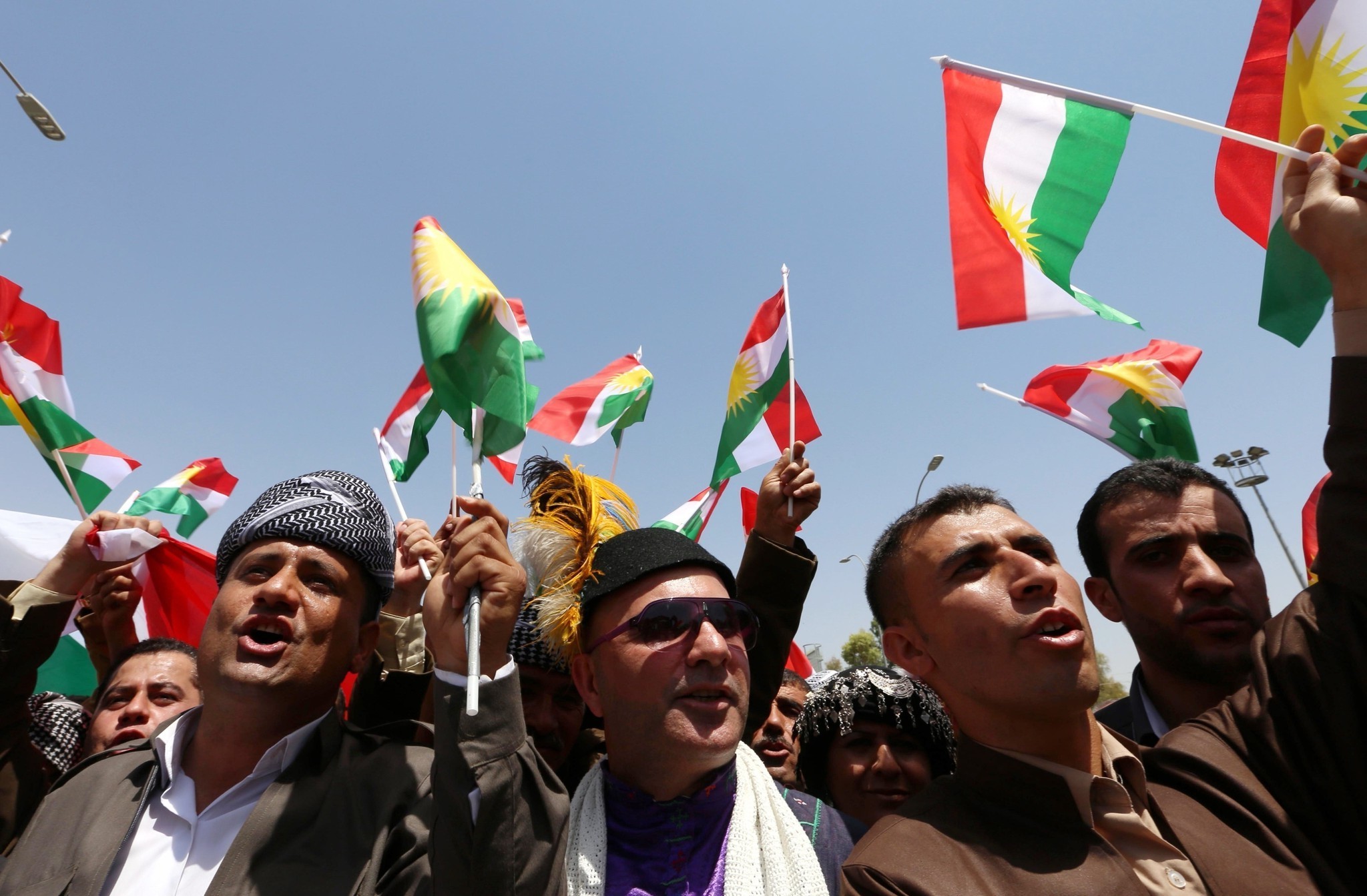
Why to blame the Kurds for the breakup of Iraq when Iraq itself breaking up
On 7th June 2017, after a joint meeting between Kurdish political parties, Massod Barzani the President of the Kurdistan Region of Iraq announced to hold an independence referendum this year on 25 September.
The decision welcomed by many, while some got threatened by including Turkey and Iran saying “Kurdistan region’s decision to hold a referendum will create further tensions in the region and they support the Iraq’s territorial integrity and national sovereignty”. To Kurds and many Iraqis, the country have already broken to three parts and the central government is a “ship without captain”.
Focusing on Iraq’s history and talking about the last three decades, Iraq became a divided state after the creation of No-Fly-Zones in 1991 to protect the Kurds in the north, and the 2003 overthrowing Saddam’s regime in power made the situation even worse and the parting of the united Iraq become more real. Apart from the Kurds in the North, the majority Shia’s in the South also started using separation slogans.
In 2006, three years after the fall of Saddam the Kurds realised that the new Iraqi government is identical to former regime, most of the leaders of the Kurdish political parties described Nouri al-Maliki, Iraqi Prime Minister between 2006-2014 “one man rule”, Maliki’s governing approach provoked the Kurdish political parties to race for a better alternative, saying either all the Iraqi citizens are equal and the powered is shared or the Kurds will choose their own path to achieve the rights of Kurdish people in Iraq.
Since then the Kurds have tried to solve the issues with the central government of Baghdad but nothing worked and the situation got worse when the Maliki made a decision to cut the 17% Kurdistan Regional Government (KRG) allocated budgets, and no military backing were given to the Kurds when the so-called Islamic State (ISIS) terrorists attacked the region in 2014. So why to blame the Kurds for the breakup of Iraq when Iraq itself breaking up.
Now the time has come and the Kurds are going to vote for the future of the next generations. I believe an independent Kurdish state in the Middle-East will be peaceful and democratic state that the whole region and beyond will benefit from. The European Union should support the Kurdish referendum and their dream of independence, to do so they bring about peace and justice for the Iraqi Kurds, a nation that has been divided and deprived of their rights for over 100 years.
I think the new Kurdish state will contribute positively to the EU’s future development “politically, economically and culturally”. Kurdistan is known to be rich in its natural resources therefore it can be a good source of energy to Europe and beyond, with its well-skilled and well-educated young workforce, can fill EU’s labour shortages. Kurdistan’s central geographical position is very important for the security of Europe, the region’s growing economy will create a big demand for the European goods, many large and medium size companies across the EU can advantage from the region’s oil and gas, construction, agricultural, health and education sectors.
The region population is liberal, known for their incredible generosity. The women rights, equal opportunity for all, freedom of belief, truthfulness, decency, dedication are the main values in the Kurdish culture, so certainly a new state for the people with these great values will not only benefit the Europe, but also the whole world. It will be a good example of a democratic state in the Middle-East. A new born Kurdish state will be a basis of stability and safety for the region and beyond.



